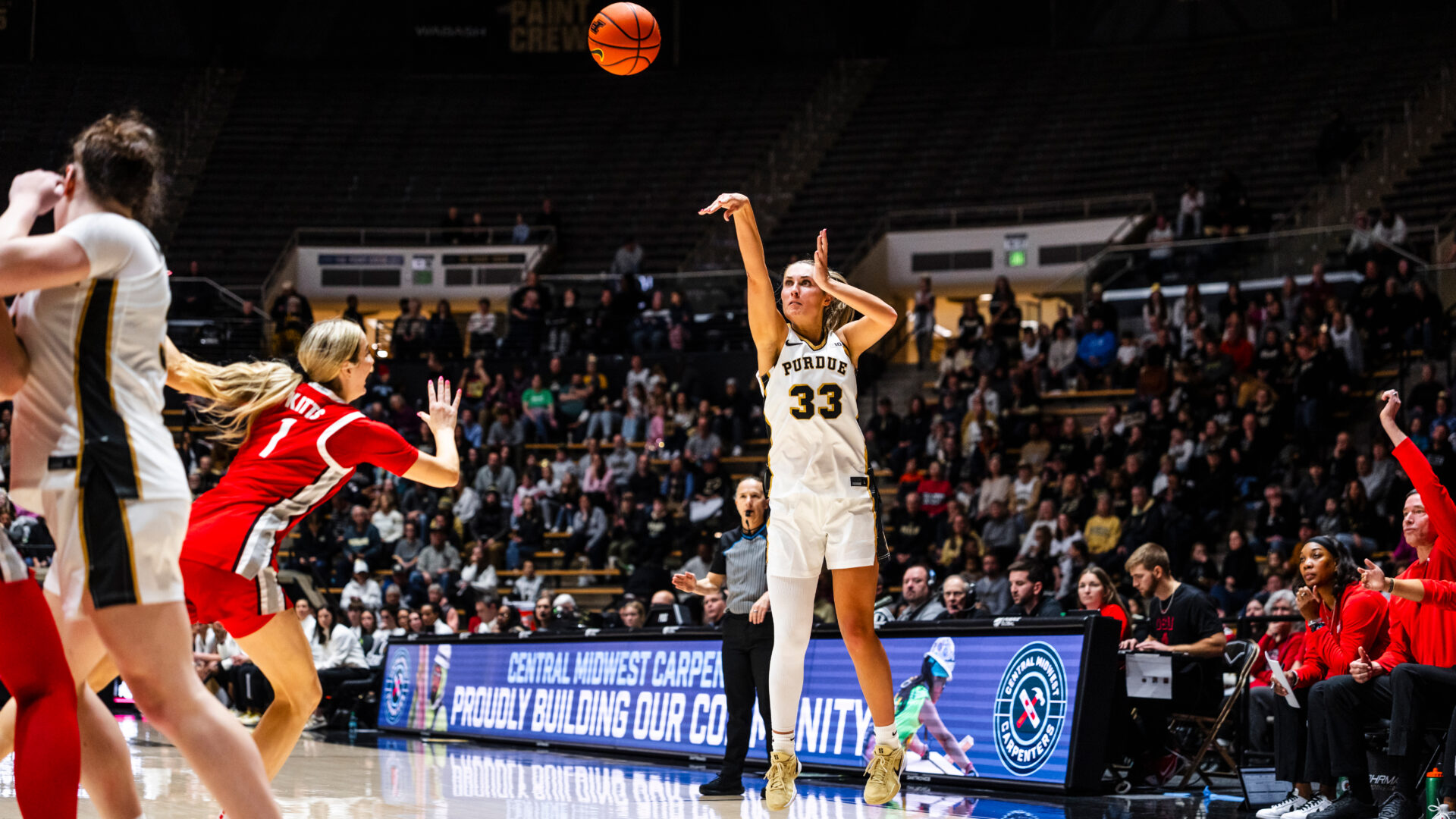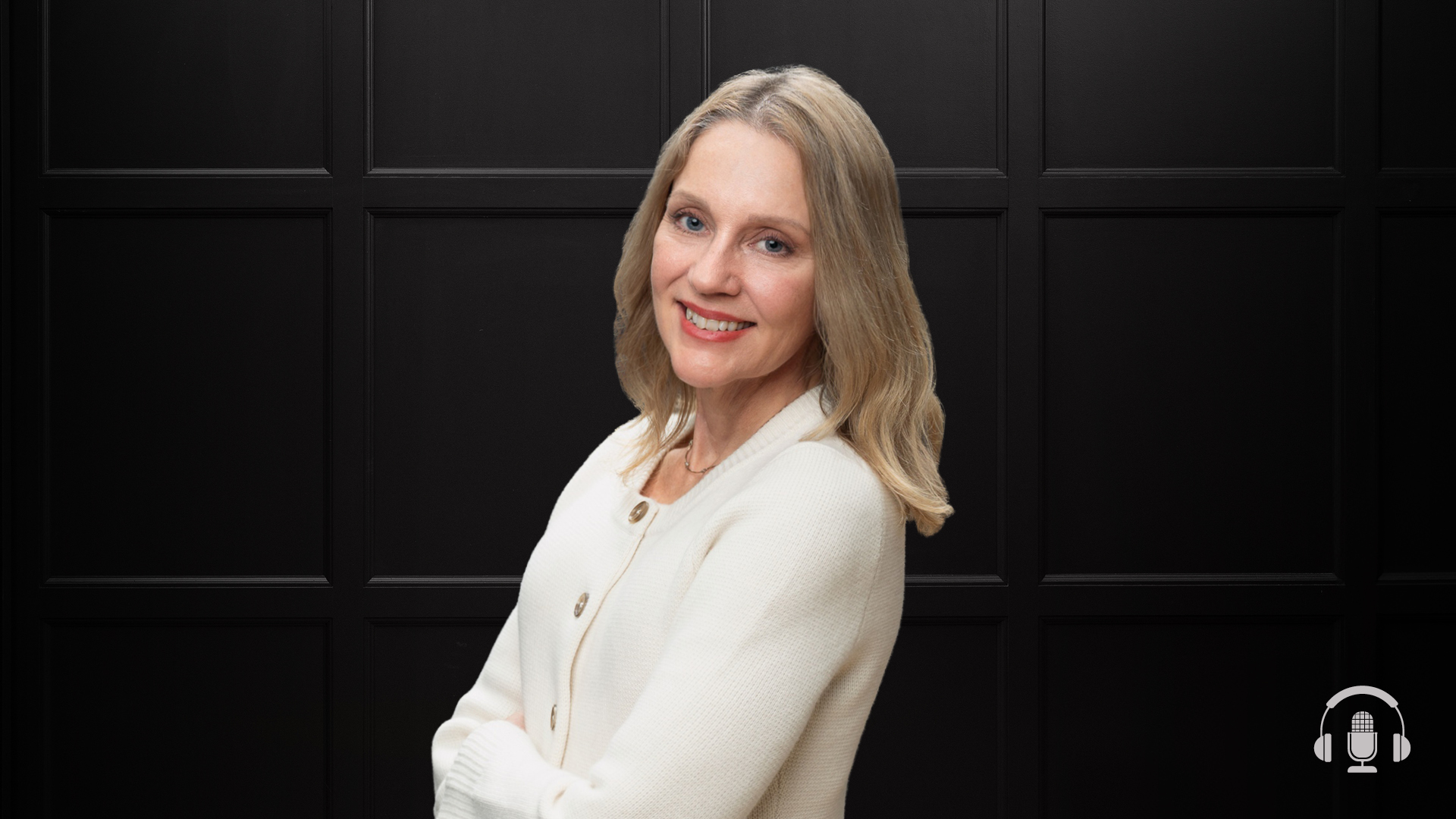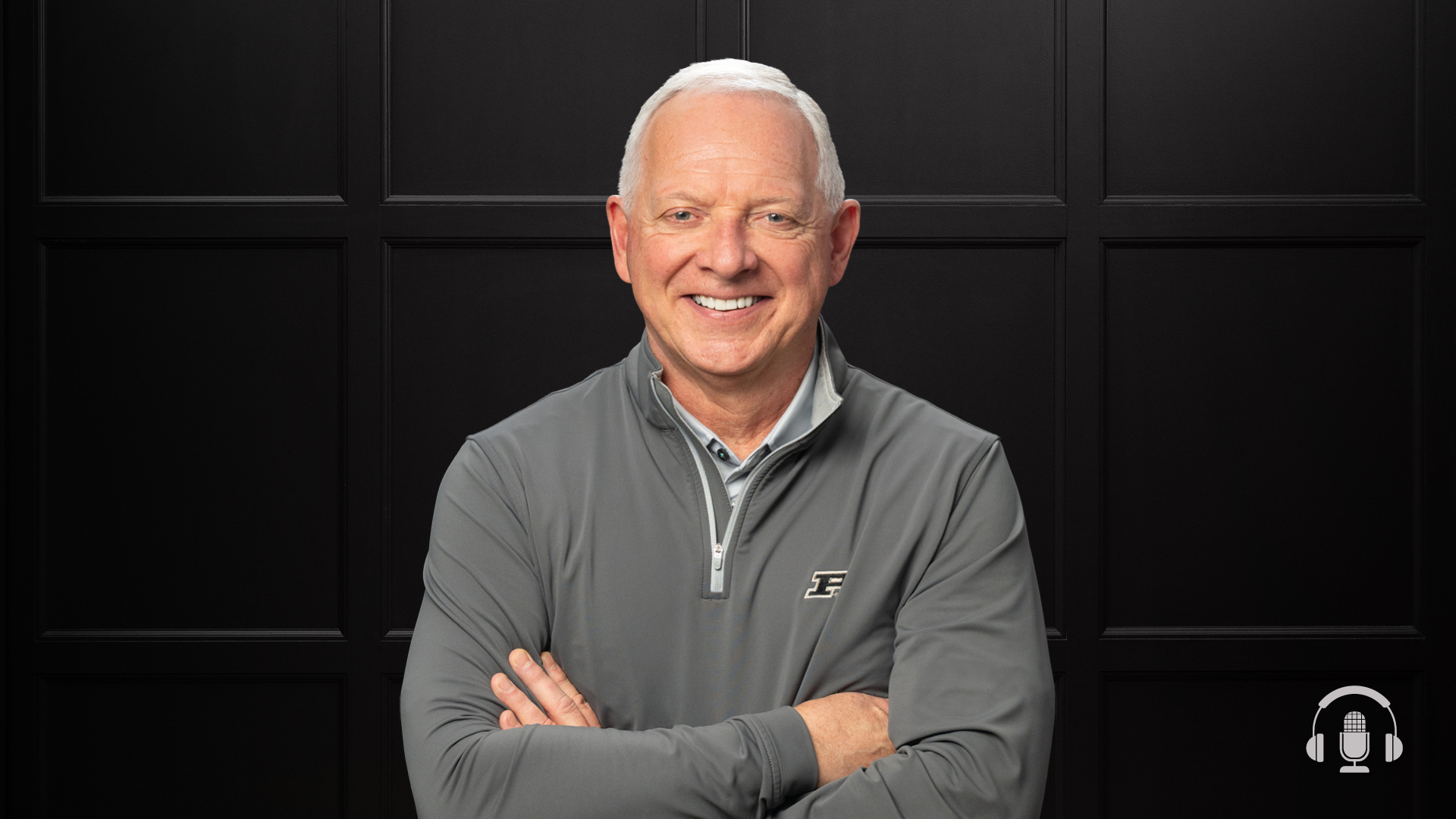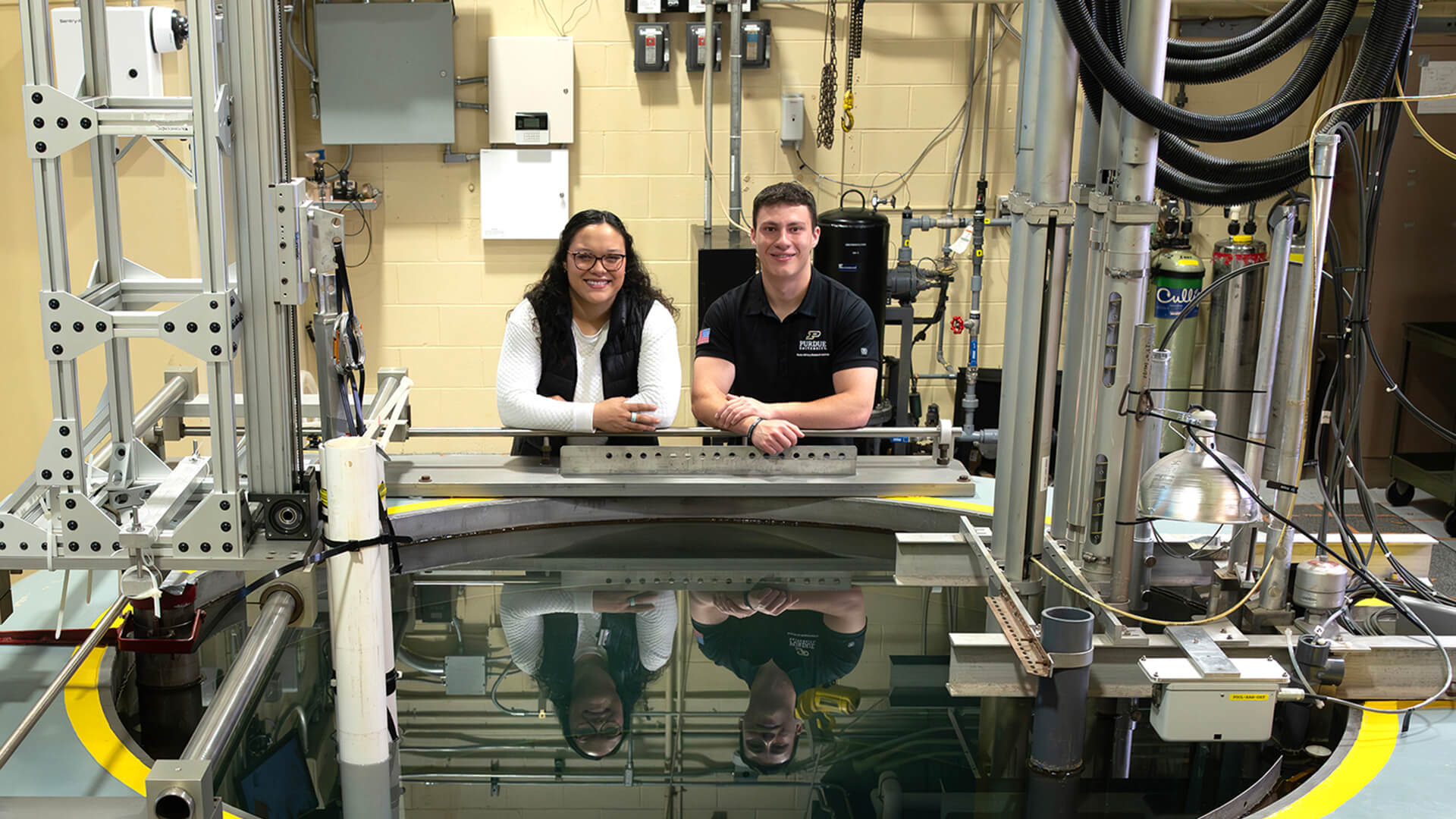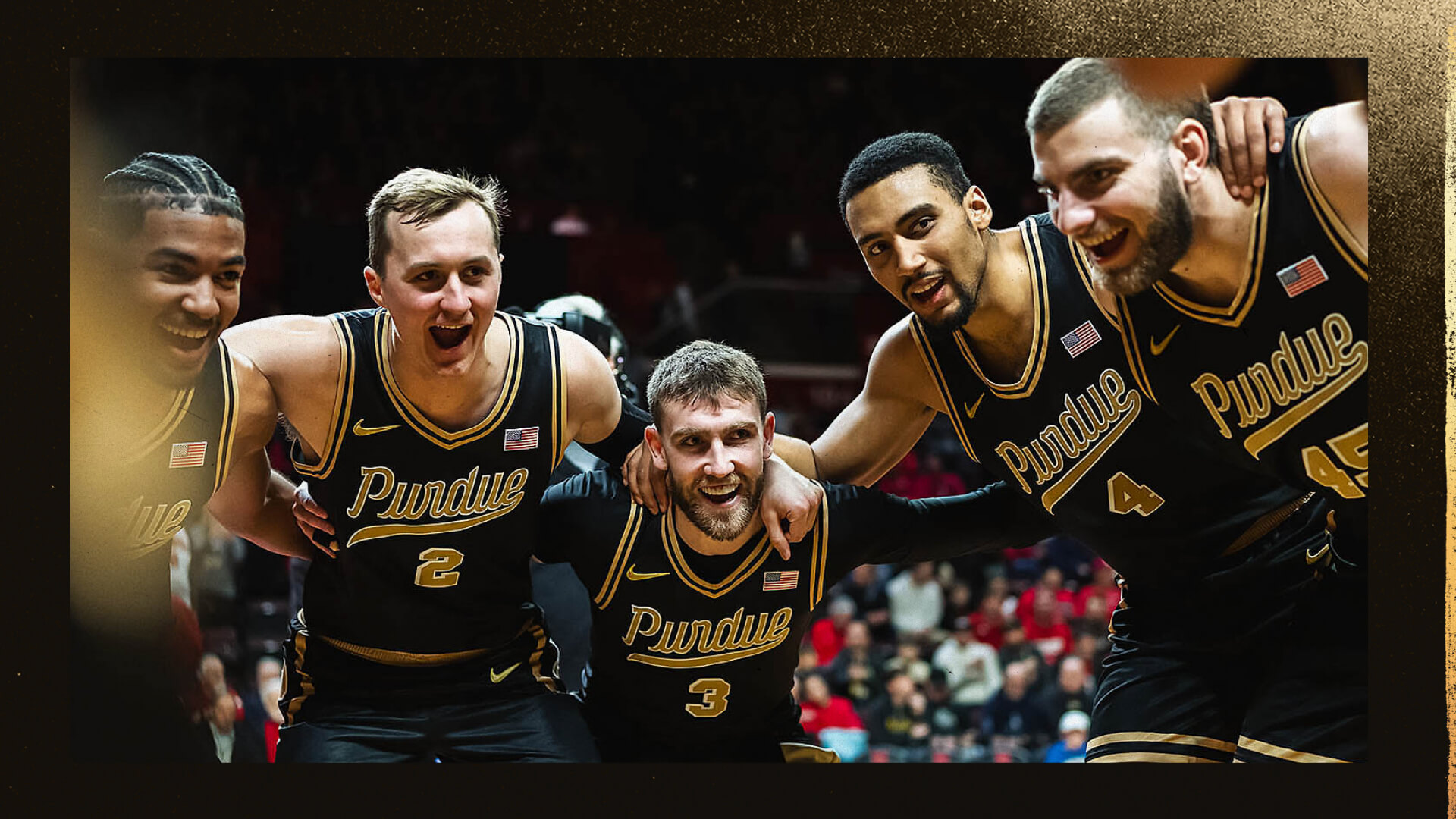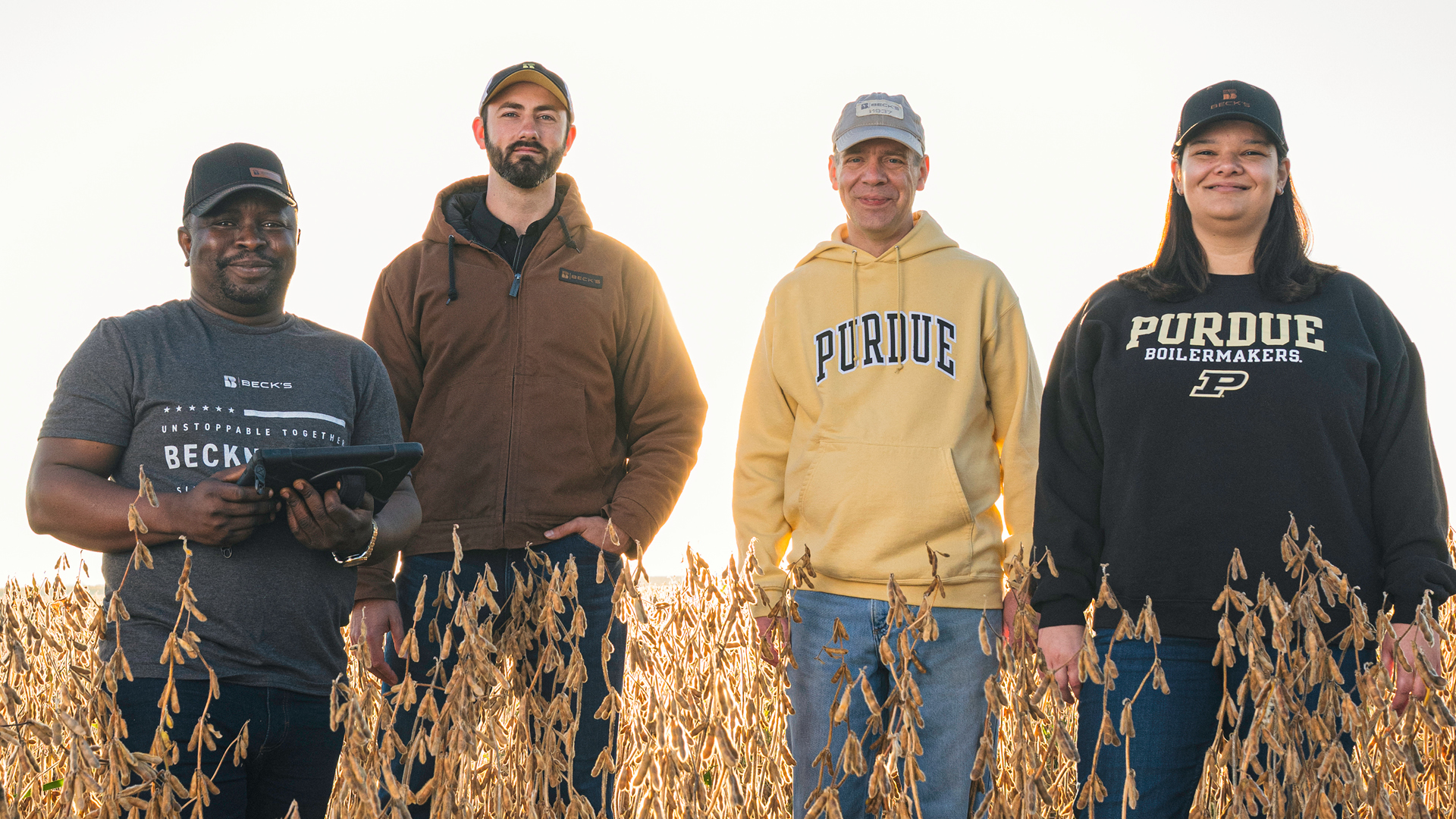Perfect pass rate, admission to Indiana bar propels Purdue Global Law School
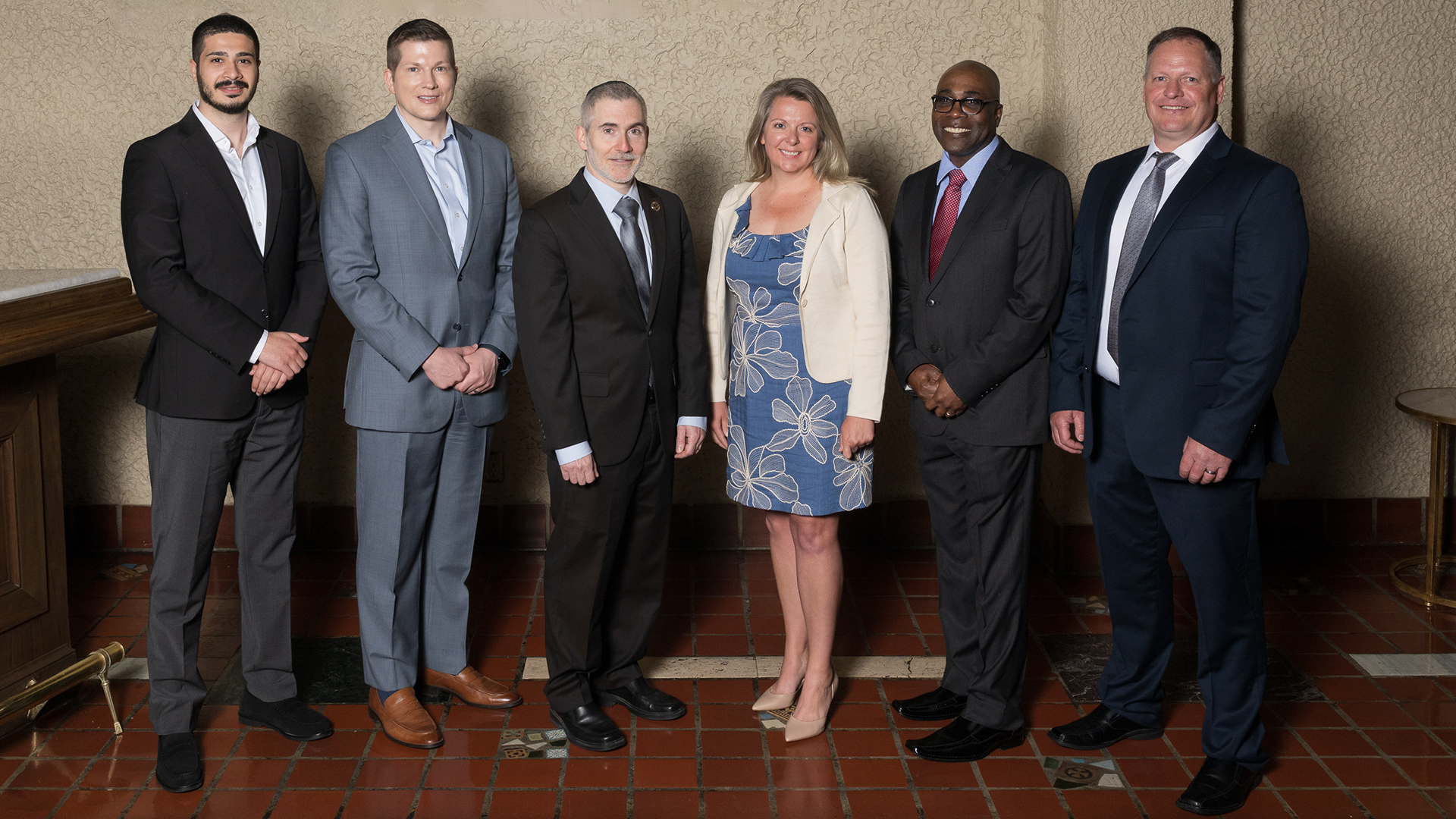
From left: Joud Elias, Daniel Stahoviak, Martin Pritikin (dean of Purdue Global Law School), Abby Strehle, Lindley Jarrett and Jeff Kraft following their admission to the Indiana Bar on May 20. (Purdue Global photo/John Underwood)
Purdue Global Law School graduates make historic strides with Indiana bar success
As a child, Abby Strehle dreamed of becoming a physician. She started her health care career after graduating from Purdue University in 2003, while also working for an attorney in Lafayette.
An elective course on science and law taught by an attorney piqued her interest in a legal career — something she kept in the back of her mind.
Strehle became a nurse practitioner in 2011. Watching her own grandparents deal with health issues and end-of-life legal decisions, Strehle knew she wanted to do more with her career — and that’s where Purdue Global Law School entered the picture.
“Going to law school and combining my health care experience with the law was part of my long-term goals. A physician colleague who had also attended Purdue Global Law School encouraged me to enroll,” Strehle says.
In 2019 Strehle enrolled at Purdue Global Law School, the nation’s first fully online law school, because of the program’s flexibility — all while working full-time and raising two children.
“I listened to recordings while I was driving or at kids’ soccer practices. I was able to utilize an app to read and progress through the modules,” Strehle says. “This was crucial for me to stay caught up and try to maintain some balance in my life.”
Strehle persevered, earning her Juris Doctor in 2023. However, at the time of her graduation, the rules in Indiana prohibited Strehle from taking the bar exam. She passed the California bar exam in 2024.
“I am a lifelong Indiana resident,” Strehle says. “There was never a question of moving out of state to practice law. I was just going to have to adapt my practice to fit within the rules.”
Licensed in California, Strehle began practicing elder and health care law — a branch of federal law — at the firm she founded, Encompass Legal Services.
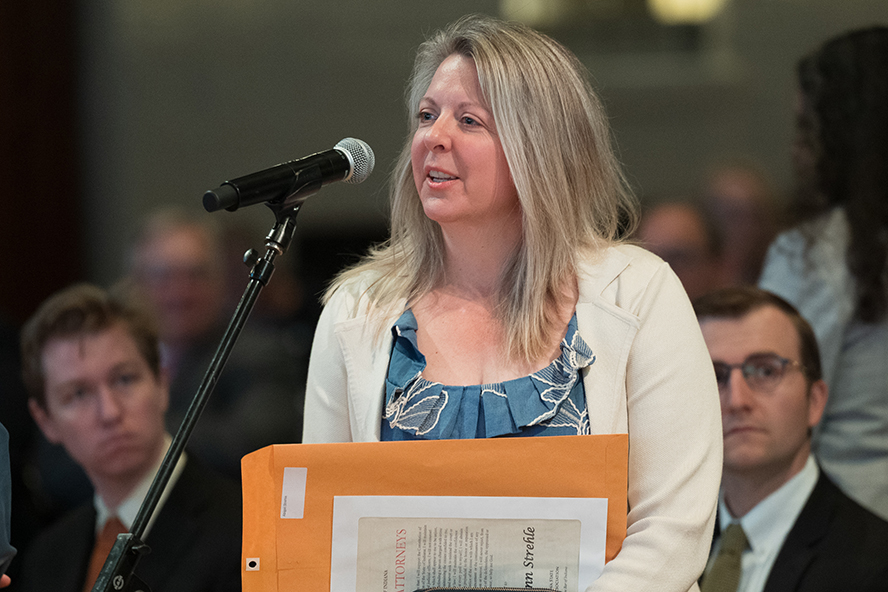
Breaking barriers and making history
Lindley Jarrett, a 2013 graduate and fellow Indiana resident, echoed similar sentiments. Though he never planned to leave Indiana, he was long restricted from practicing law due to accreditation rules that barred online law school graduates from sitting for Indiana’s bar.
That was until an Indiana Supreme Court ruling in July 2024 established an amendment to Admission and Discipline Rule 13, creating a path for graduates from Purdue Global Law School and other non-ABA accredited schools to become eligible for the state’s bar exam.
Five graduates submitted waiver petitions to sit for the February bar exam — the first exam they would be eligible for — and were approved. All Purdue Global Law School alums who sat passed on their first attempt, including Strehle and Jarrett, along with Joud Elias, Jeff Kraft and Daniel Stahoviak.
The Indiana Supreme Court’s decision to allow a pathway for these graduates was a historic moment.
“It was a proud moment to be sworn into the bar,” Jarrett says. “It’s a dream come true. The closed door has finally opened.”
With years of experience in environmental and occupational health and safety, Jarrett plans to pivot into legal practice within his areas of expertise, aiming to support both corporate initiatives and underserved communities through pro bono work.
“Purdue Global Law School gave me a high-quality legal education with academic rigor and real-world application,” Jarrett says. “Our achievements not only validate the Indiana Supreme Court’s decision but also underscore that the law school is on par with brick-and-mortar institutions.”
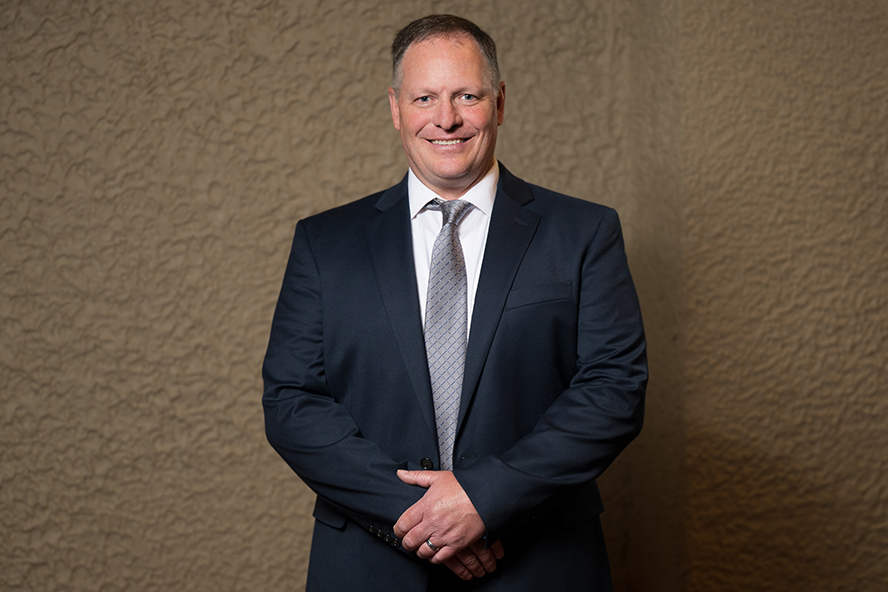
Purdue Global Law School turned out to be the best decision for my career.
Jeff Kraft
Purdue Global Law School, ’24
Perseverance paying off
Martin Pritikin’s unwavering advocacy played a key role in opening Indiana’s bar exam to Purdue Global Law School graduates.
“Indiana allowing our graduates to sit for its bar exam benefits not just our graduates but those that they would come to serve,” says Pritikin, dean and vice president of Purdue Global Law School. “Indiana, like virtually every state, has an access-to-justice problem, especially in rural and other underserved areas. I’ve long believed that the best way to get more lawyers into underserved areas is to make it easier for people who already live in those areas to remain there while they go to law school by going online, and this is a first step in the ability to prove that’s true.”
“Dean Pritikin was a constant presence throughout our journey,” Elias says. “Even after graduation, he continued to host review sessions for the bar. That’s the measure of this man.”
2024 graduate Elias, who works as a government contracts manager at General Motors, earned one of the highest bar exam scores in the nation (top 6%).
“My Purdue Global law degree was transformative,” Elias says. “People underestimate online legal education, but it pushed me harder than most traditional schools ever could.”
The Indiana Supreme Court’s decision, paired with Pritikin’s tireless efforts, has further validated the argument that the online law school is producing capable, court-ready attorneys as well as any traditional law school — it just needed a chance.
“The accomplishments of these graduates show what’s possible when we give dedicated individuals a fair opportunity,” Pritikin says. “Their success is a win for Indiana — and for the future of legal education.”
On May 20, all five graduates were sworn in at the Indiana Bar Admission Ceremony.
Kraft, a 2024 graduate, attended the ceremony and said the experience was the culmination of a long, hard road.
“Being a member of the Indiana bar is a validation of the quality of education we received,” Kraft says. “Purdue Global Law School provided me an amazing opportunity — and it turned out to be the best decision for my career.”
“It was very special to be a part of this ceremony, to see our graduates standing up there, shoulder to shoulder with graduates of traditional law schools, taking that same oath in the presence of the Supreme Court justices and the other leaders of the Indiana bench and bar,” Pritikin says.
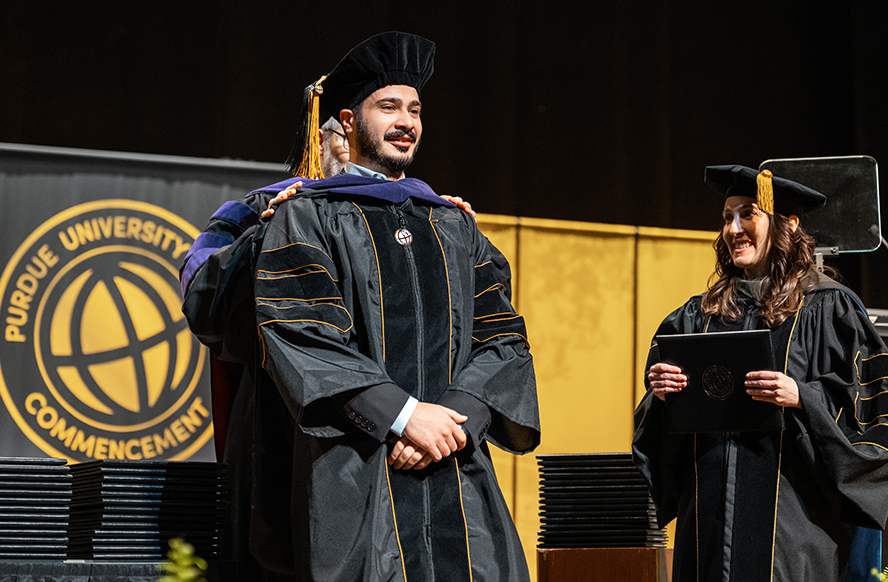
Forward momentum
With the opportunity and success in Indiana, Pritikin sees this success as a springboard for additional states to follow Indiana’s lead. In October 2024 the Connecticut Bar Examining Committee voted to allow graduates of Purdue Global Law School to sit for the Connecticut bar exam upon graduation.
The school is seeing the fruits of Pritikin’s labor, and the Indiana Supreme Court’s decision has positively impacted Indiana’s enrollment numbers. In the past three enrollment cycles since the court’s decision last July, 62 Indiana-based students have enrolled at Purdue Global Law School.
Of the 78 Indiana-based students currently enrolled, nearly half are in rural or small towns and about 10% are in the northwest corner of the state, which, while not rural, has had a lawyer shortage since Valparaiso University School of Law’s closure. In all, about half of the state’s law students are in underserved areas.
“They’re coming from small towns. They’re coming from underserved areas that don’t have access to law school and often don’t have access to lawyers,” Pritikin says. “When these students start graduating in the next few years, we hope and expect that we really will see Purdue Global Law School making a big dent in the state’s access-to-justice crisis.”
